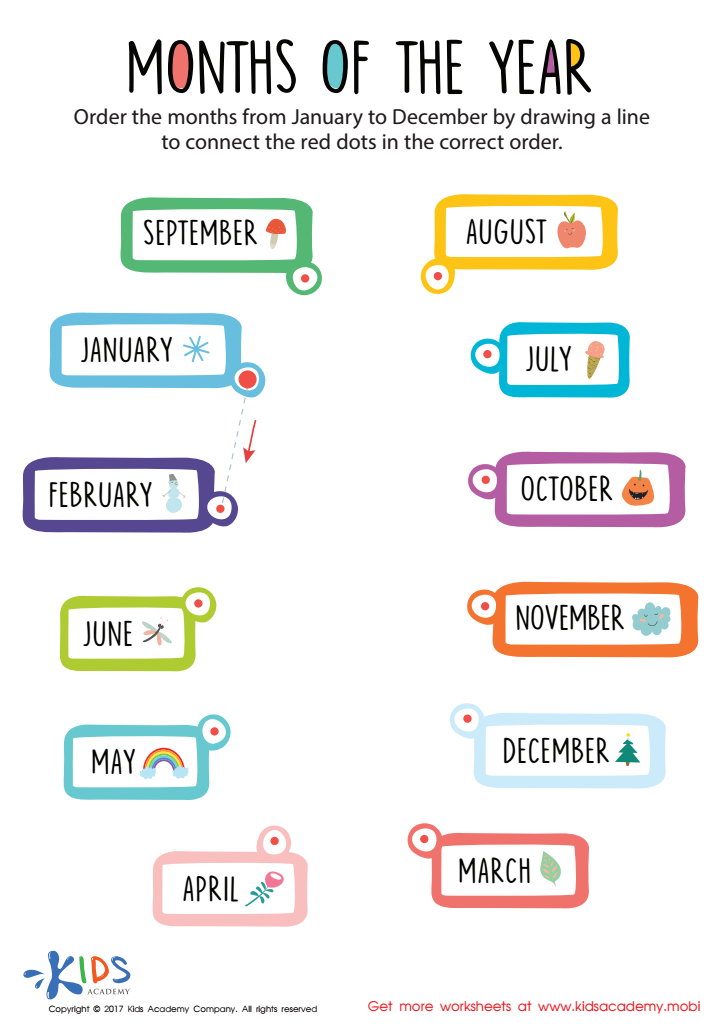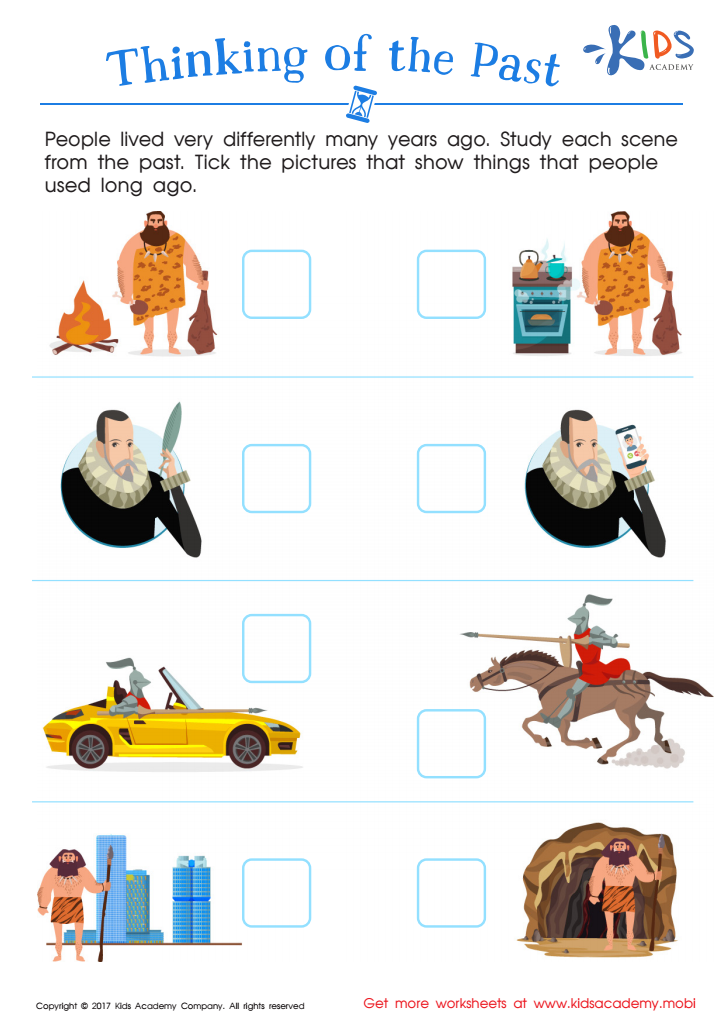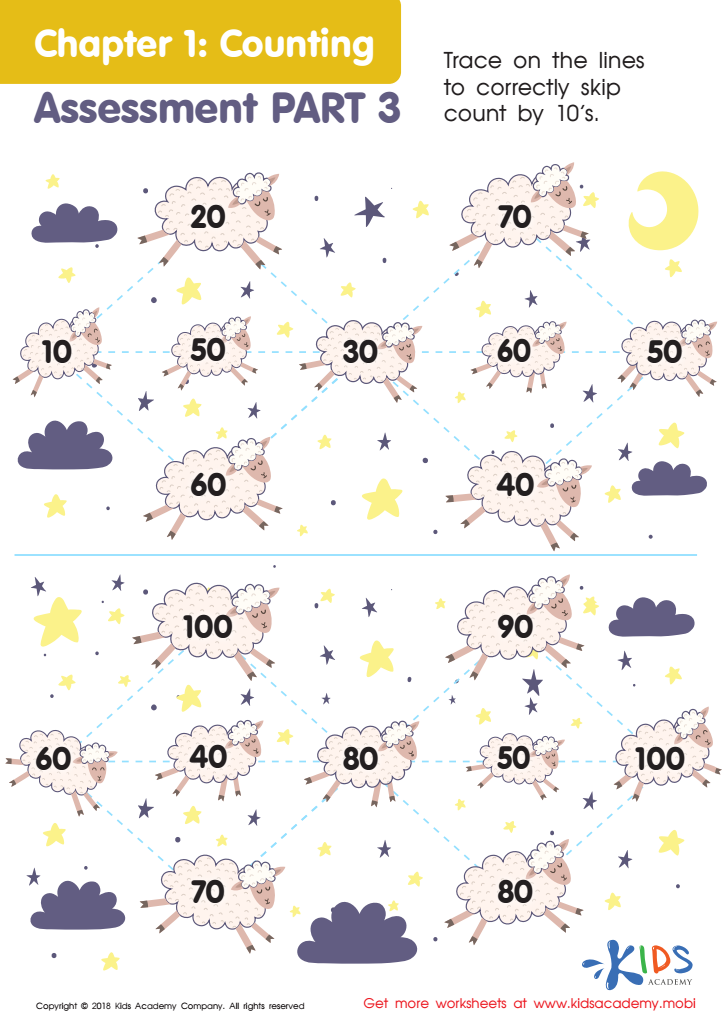Understanding sequence Kindergarten Worksheets
3 filtered results
-
From - To
Unlock your child’s potential with our "Understanding Sequence Kindergarten Worksheets." Tailored for young learners, these engaging activities enhance cognitive skills and promote logical thinking by teaching sequential order through fun, colorful exercises. Designed by educational experts, our resources help kids comprehend story sequences, daily routines, and more. Each worksheet offers interactive tasks that captivate and educate, laying a strong foundation for future academics. Whether it’s connecting events in a story or arranging pictures in the correct order, these worksheets offer valuable practice. Perfect for classroom use or homeschooling, foster a love for learning with our proven tools.


Months of the Year Worksheet


Thinking Past Printable


Counting: Assessment 3 Worksheet
Understanding sequence is a fundamental skill for kindergarteners that lays the groundwork for various aspects of cognitive development. For parents and teachers, focusing on this helps children grasp the concept of order and predictability in daily activities, which is a crucial part of their growing understanding of the world. By learning to identify and follow sequences, children strengthen their memory and attention to detail, as they must recall steps and predict what comes next.
In literacy, sequencing aids reading comprehension and storytelling. Children learn the logical progression of events in a narrative, from beginning to middle to end, which enhances their ability to understand and describe stories. In mathematics, sequencing is vital for number recognition, counting, and pattern identification, helping children develop early math skills that are indispensable for future learning.
Socially and emotionally, understanding sequences empowers children to follow routines and instructions, contributing to smoother classroom behavior and improved cooperation with peers. Furthermore, sequencing supports problem-solving skills by teaching children how to approach tasks step-by-step, making complex activities more manageable.
Therefore, paying attention to sequencing in kindergarten is essential as it supports holistic development, ensuring a strong foundation for academic success and daily life competence. Parents and teachers equipped with this knowledge can better support and foster these crucial early learning experiences.

 Assign to My Students
Assign to My Students
















